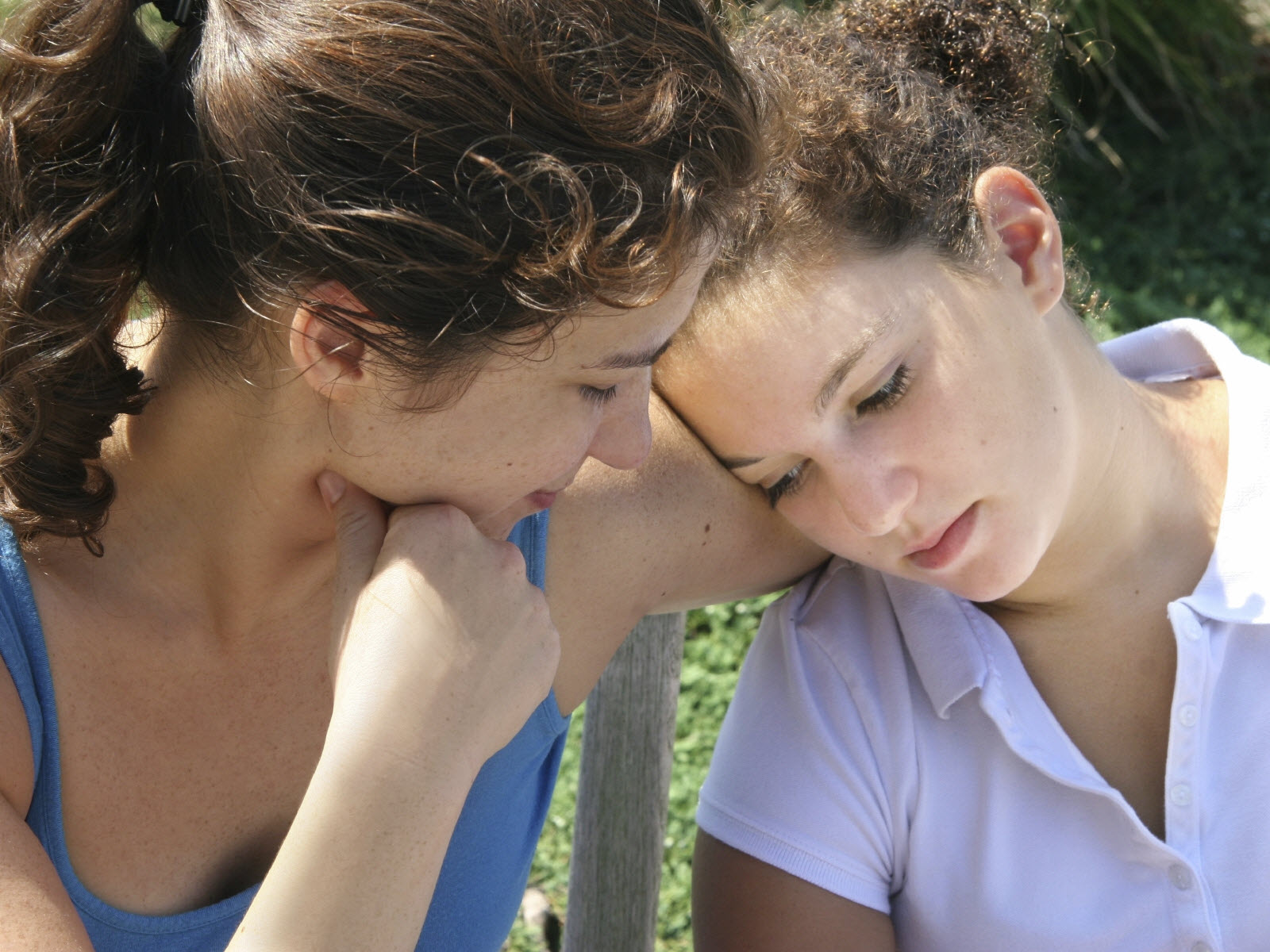
When my kids were toddlers, I was surrounded by parenting experts and other toddler parents to talk through issue after issue. While I knew my tween would revert back to her toddler self, I didn’t reach out to friends to trade notes, nor did I call on parenting experts for advice. The summer before middle school was one of isolation; not for her but for me. How different those hard months would have been if I had belonged to a tween version of PEPS (the ubiquitous Seattle-area suppport group for new parents), and we had invited guest speakers to explain the new planet our tweens now lived on. Who abducted my daughter and when would she return?
Wait, I have the answer for you: Parenting classes, and learning, don't need to end when your kid moves out of babyhood.
Recently I attended a panel presentation from by five Seattle-area parenting educators who have joined together to create the Middle School Survival Guide. The thought of a three-hour parenting class filled me with dread: 180 minutes to feel guilty because I have no idea how to parent my hormone-fueled daughter. Luckily, my pre-event thoughts were 100 percent wrong.
While I’d love to describe the innovative way class began, I want the suspense of not knowing to lead you to one of these workshops. The simple exercise did make this participant listen more deeply thanks to the clever reminder of how we don’t know what the tween and teen years will bring for our kids. Preparing myself for the journey would surely make the surprises easier to deal with.
I will tell you that one of these parent educators, Yvonne-Monique (Zick) Aviva, illuminated exactly what had abducted my tween: her brain's amygdala is in overdrive during these years. Much of the information that is coming into our tween's brain is going straight through the amygdala, which is like the brain’s emotional fire alarm. When my own tween doesn’t like the way her new socks fit, she sees these insufficient white no-show booties through her brain’s amygdala. The socks not looking right with her brand new blue shoes is a big deal, a 4-alarm fire signal for sure.
The palatable humor and help pouring from these five tween experts made me remember how lucky I am to be on this journey, too, even if my tween’s brain is being ruled by an emotional fire alarm.
Adults mostly process the world through their cerebral cortex, using it to analyze incoming input. Our tweens are not using this most of the time as their brain is going through a big re-wiring circus. Welcome, amygdala, and thank you for helping me understand why we discuss my daughter’s imperfect socks every single morning lately. At this point in the class, we were only 30 minutes in and I already had a take-home tool: understanding my daughter’s brain a bit better clarified the sock issue at our house. Now I had some much needed levity around a strange situation that I could have never dreamt up before I found myself sharing living space with a tween.
Splitting up the task of teaching between five experts is brilliant. Each of the five experts had their own area of expertise and their own unique style of sharing information. (This is how educators get kids through middle school: 6 or 7 periods with different instructors!)
Jo Langford, sex educator for boys and their families from Be Heroes, talked about online safety for tweens. He walked us through cell phone contracts, the latest apps for smart phones, and creating house rules for web safety. Langford stressed that idea that parents should be in the driver’s seat as our kids learn to navigate media, teaching them how to safely and respectively use this ever-changing tool. “Let your kids know this is how our family behaves online. Our kids have more technology available to them before their manners and social skills are here. And we all know all roads lead to the Internet,” Langford says.
Kim Estes, child safety expert and founder of Savvy Parents Safe Kids, urged us to be brave parents with rules and consequences to keep our kids safe. Her specific rules on how to talk about real dangers with our kids made this task a manageable idea. It was good to hear again that non face-to-face quick chats in the car are awesome ways to cover hard topics such as predators and sex trafficking.
Amy Lang is a sexual health educator and founder of Birds+Bees+Kids, which helps parents become informed, confident and comfortable talking children of any age about sexuality, love, and relationships. The stunning stats she delivered — 1 in 5 teens have sexual intercourse before the age of 15 and 1 in 4 teenagers has a sexually transmitted disease or infection — was leavened by her witty delivery and her reminder that parents are their children’s primary influence. “An informed child is an empowered child, and providing info does not give them permission. You are the best source of information because you will share your values,” Lang says.
 Teen educator and founder of Teen Wise, Sheri Gazitt, helps teen and tween girls and their parents navigate these years. Her calm, open delivery was an example of how I wish to be around my own daughters. She talked with us about how to have conversations with our tweens, asking us to remember our twelve year old selves. “Our job is to listen, digest, and respond. We can train ourselves to deal with emotions [ours and our tweens]. Try to respond and not react; ask what is my purpose and how do I want my kids to feel at the end of this conversation,” Gazitt says.
Teen educator and founder of Teen Wise, Sheri Gazitt, helps teen and tween girls and their parents navigate these years. Her calm, open delivery was an example of how I wish to be around my own daughters. She talked with us about how to have conversations with our tweens, asking us to remember our twelve year old selves. “Our job is to listen, digest, and respond. We can train ourselves to deal with emotions [ours and our tweens]. Try to respond and not react; ask what is my purpose and how do I want my kids to feel at the end of this conversation,” Gazitt says.
Parent educator Yvonne-Monique (Zick) Aviva —founder of Parent Tool School — talked about creating a family alcohol and drug policy and how to erect strong guardrails to help our children know the boundaries and rules of our families. Although the statistics she delivered were humbling, she again reminded us parents are the most powerful influences in their children’s lives. “They will try to get push back on the family rules. Tell them it’s actually non-negotiable and walk away. Their job is to know where you stop and they start,” says Aviva.
This line Aviva delivered twisted my heart and squeezed it tight. Where I end is where my tween starts her journey to becoming an independent adult. I’ll be unpacking the information from these five educators for a long time. What I loved best about Middle School Survival Guide was knowing that I could call any of these educators at any time and they would have helpful advice for my family along with firm you-can-do-this-hard-parenting affirmations. So many people tell me the tween and teenage years are hard. I believe them, but I also know classes like this help immeasurably. The palatable humor and help pouring from these five tween experts made me remember how lucky I am to be on this journey, too, even if my tween’s brain is being ruled by an emotional fire alarm.
Note: The next lecture will take place on Saturday, March 28, 2015 in Seattle from 1–4 p.m. Click here for details and tickets.











